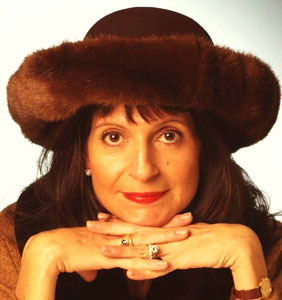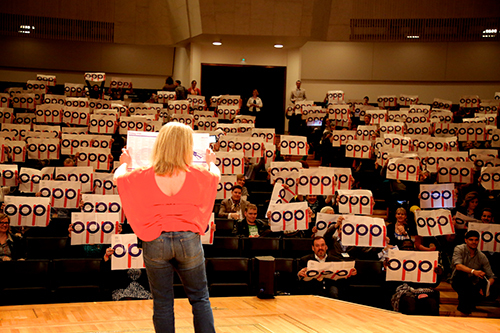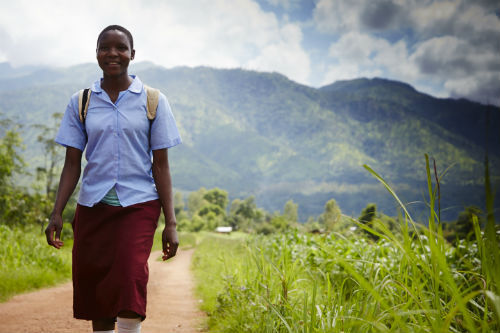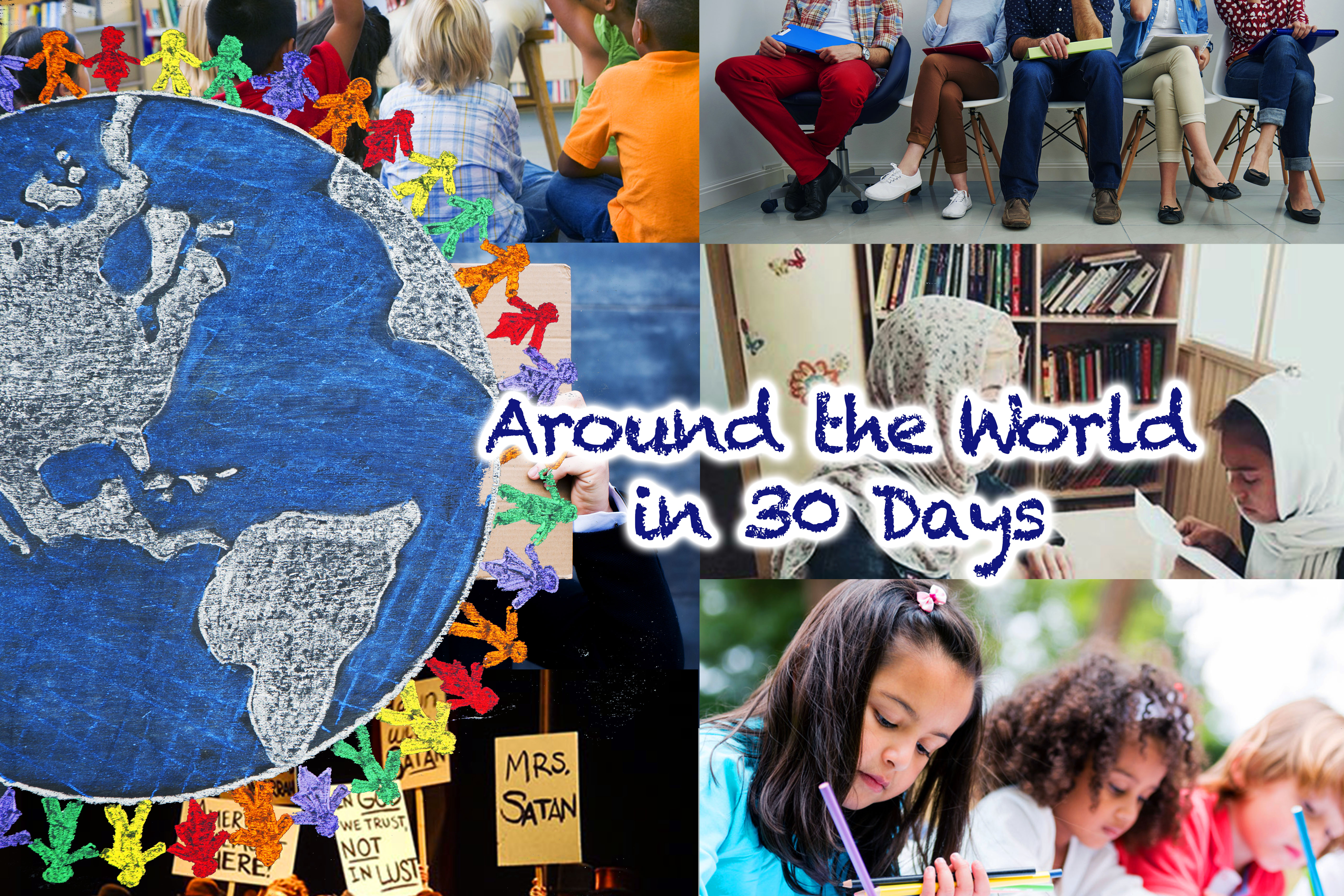
In Aprile, Ho continuato le mie conversazioni con leader di pensiero in tutto il mondo su molti argomenti, tra cui il ruolo di test standardizzati, disuguaglianza globale, creatività, e l'innovazione nel nostro mondo di oggi.
I saw first hand the amazing work that creativo Oklahoma is doing in that state to nurture the arts with schools, imprenditori e le comunità. This is the age of innovation and all our futures depend on it. The Tribeca Disruptive Innovation Awards and Anti-Summit workshops at the Tribeca Film Festival taught the audience profound lessons on innovation by sharing the stories of some of the world’s most impressive entrepreneurs. La nostra Top 12 Global Teacher bloggers tackled the topics of standardized testing and learning in the classroom this month. I also researched one of many emerging initiatives to prepare graduate students for study abroad. I had an insightful chat with Howard Gardner and Pasi Sahlberg about what makes US and Finnish education so great. E infine, I talked to WISE Education Prize winner, Ann Cotton, about the continued success of her organization in Africa, Camfed.
Finlandia is remarkable for not only routinely scoring among the top nations on the PISA exams, but also for being among the most equitable school systems in the world. The US is widely seen as having the world’s finest higher education institutions. Gardner osserva che “unlike the case in other countries, dove l'istruzione superiore è essenzialmente professionale o professionale, American colleges and universities offer a liberal arts education — a broad set of courses which develop analytic, creativo, and communicative capacities.” According to Sahlberg, Finland’s success “is often built on research, innovazione e modelli di altri paesi, most often from the United States.”
My Top 12 Insegnante blogger tackled the enduring question of how to balance test preparation with overall classroom goals. It turns out that many refuse to focus exclusively on the test, working instead on larger goals such as critical thinking and real world experience. Most found good test scores could fall into place as a byproduct of developing a love of learning. But almost all felt that standardized testing misses the mark on what’s important in the classroom.
If standardized testing is too caught up with traditional modes of judgment that make no sense to assess the present day student, then one has to hope that the high stakes testing system will innovate sometime soon. Nel frattempo, at the Tribeca Disruptive Innovation Awards (inspired by Clay Christensen’s Theory of Disruptive Innovation), the impressive list of global honorees talked about the innovation occurring in our world right now. I asked some of the honorees to share their innermost secrets on disruptive success. One of the many quotable comments was from Matthew Putman of Nanontronics: “Do not look solely to the leaders in your field. Lasciate che Henri Matisse guidare tanto quanto Steve Jobs.”
We live in a global world and I had the pleasure of talking to Tom Roccia (Associate Provost for Enrollment Services at Teachers College, Columbia University) about the International Pre-Graduate Program that Teachers College is launching this summer. Tom filled me in on the skills and knowledge sets that are most important to students preparing to teach and study in America, and noted that “Classroom discussions are often different from culture to culture. The expectations of the students might differ across cultures.”
da ultimo, I talked to the extraordinary Ann Cotton, Founder and President of Camfed, a world-renowned non-profit organization tackling poverty and inequality in sub-Saharan Africa. Ann discussed the continued importance of Camfed, the various changes in education inequality that have occurred since she began her work in Africa, and the benefits of the WISE Prize for Education she received at the end of last year. Her advice to newcomers who want to make a difference to global inequality is to “listen very hard and learn a great deal.” Ann’s practice of compassionate thinking and learning has allowed her to pave the way for great progress in African education. The best schools, in her experience, are always “looking at the wider individual. We have to think about the whole child because one will succeed in many different ways in life and if the education system puts academic measurement as the main way of measuring, then we place children and institutions under enormous strain.”

Unitevi a me e leader di pensiero di fama mondiale tra cui Sir Michael Barber (Regno Unito), Dr. Michael Block (Stati Uniti), Dr. Leon Botstein (Stati Uniti), Il professor Argilla Christensen (Stati Uniti), Dr. Linda di Darling-Hammond (Stati Uniti), Dr. MadhavChavan (India), Il professor Michael Fullan (Canada), Il professor Howard Gardner (Stati Uniti), Il professor Andy Hargreaves (Stati Uniti), Il professor Yvonne Hellman (Paesi Bassi), Il professor Kristin Helstad (Norvegia), Jean Hendrickson (Stati Uniti), Il professor Rose Hipkins (Nuova Zelanda), Il professor Cornelia Hoogland (Canada), Onorevole Jeff Johnson (Canada), Sig.ra. Chantal Kaufmann (Belgio), Dr. EijaKauppinen (Finlandia), Sottosegretario di Stato TapioKosunen (Finlandia), Il professor Dominique Lafontaine (Belgio), Il professor Hugh Lauder (Regno Unito), Signore Ken Macdonald (Regno Unito), Il professor Geoff Masters (Australia), Il professor Barry McGaw (Australia), Shiv Nadar (India), Il professor R. Natarajan (India), Dr. PAK NG (Singapore), Dr. Denise Papa (Stati Uniti), Sridhar Rajagopalan (India), Dr. Diane Ravitch (Stati Uniti), Richard Wilson Riley (Stati Uniti), Sir Ken Robinson (Regno Unito), Professor Pasi Sahlberg (Finlandia), Il professor Manabu Sato (Giappone), Andreas Schleicher (PISA, OCSE), Dr. Anthony Seldon (Regno Unito), Dr. David Shaffer (Stati Uniti), Dr. Kirsten Immersive Are (Norvegia), Cancelliere Stephen Spahn (Stati Uniti), Yves Theze (LyceeFrancais Stati Uniti), Il professor Charles Ungerleider (Canada), Il professor Tony Wagner (Stati Uniti), Sir David Watson (Regno Unito), Professor Dylan Wiliam (Regno Unito), Dr. Mark Wormald (Regno Unito), Il professor Theo Wubbels (Paesi Bassi), Il professor Michael Young (Regno Unito), e il professor Zhang Minxuan (Porcellana) mentre esplorano le grandi questioni educative immagine che tutte le nazioni devono affrontare oggi.
Il Global Ricerca per l'Educazione della Comunità Pagina
C. M. Rubin è l'autore di due ampiamente lettura serie on-line per il quale ha ricevuto una 2011 Premio Upton Sinclair, “Il Global Ricerca per l'Educazione” e “Come faremo a Leggere?” Lei è anche l'autore di tre libri bestseller, Compreso The Real Alice in Wonderland, è l'editore di CMRubinWorld, ed è un disgregatore Foundation Fellow.
Segui C. M. Rubin su Twitter: www.twitter.com/@cmrubinworld





Commenti recenti